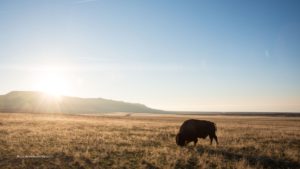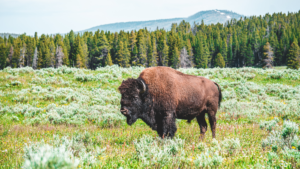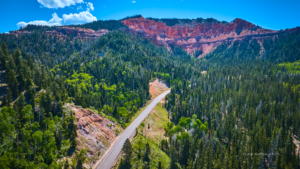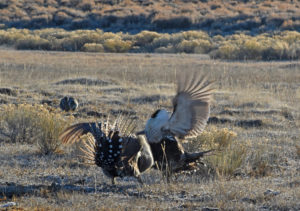Online Messenger #260
(view with pictures, as displayed in email)
A recent Bureau of Land Management (BLM) proposal in the Owyhee Field Office of Idaho puts bighorn sheep at a high risk of disease transmission from domestic sheep grazing. Domestic sheep easily pass pneumonia to wild bighorn, devastating whole herds of the native ungulates through slow and painful death. Despite having spent untold thousands of taxpayer dollars to find a workable solution to keep the sheep herds apart, the BLM’s recent proposal to renew 15 livestock permits in the Jump Creek, Succor Creek, and Cow Creek watersheds of western Idaho simply ignores the science and rationalizes high levels of risk by claiming the risk is even higher elsewhere.
Western Watersheds Project’s members and supporters likely recall the Payette National Forest decision that eliminated sheep grazing on nearly 70,000 acres over three-years between 2010 and 2013. The most rewarding outcome of that decision came earlier this year, when the first bighorn ewe was spotted on one of the now-closed allotments for the first time in many decades!
On the Payette, the Forest Service limited the maximum risk of contact to just 4 percent, eliminating any possibility of allowing grazing that had a greater threat to bighorn. The BLM’s Owyhee decisions permit an annual risk of contact of over 21% on the Poison Creek Allotment! In addition, the risk increases to an astounding 45% if bighorn sheep ever reach population goals set by the Oregon and Idaho wildlife management agencies. Instead of basing the plan on conservation, BLM simply cited to other areas where it allows an even higher level of risk of contact (on the Three Fingers and Board Corrals allotments in Oregon where the risk of contact is 30% and 100%, respectively, see map).
The BLM fails to meet the objectives of the Owyhee RMP that requires protection and enhancement of bighorn populations and habitat and the reduction of the potential for disease transmission between wild and domestic sheep. The BLM should designate areas where the risk of contact threatens the viability of bighorn sheep populations as unsuitable for domestic sheep and goat grazing. Because bighorn sheep are mobile and routinely foray into new areas, this risk analysis must be conducted whenever bighorn sheep are detected in new areas outside of the previous risk analysis areas to determine the suitability of domestic sheep grazing.
WWP provided a protest of the proposed decision last week and we’re prepared to take this to court if we have to. BLM can’t just pick a number and accept the potential for domestic sheep to extirpate bighorn.
Although the protest period is over, you are welcome to contact Idaho BLM Acting State Director Tim Murphy at tmurphy@blm.gov or give him a call at (208) 373-4001.
If domestic sheep can’t coexist with bighorn, permittees are welcomed to retire their allotments under the 2012 Consolidated Appropriations Act that mandates permanent closure upon relinquishment. Interested permittees should contact wwp@westernwatersheds.org for more information.
In other news, WWP welcomes Paul Ruprecht of Portland, OR as our newest staff attorney! Paul will be focusing on WWP cases in the Pacific Northwest and providing legal support to other field offices as needed. Paul has volunteered with WWP in the past and we’re delighted to have him as part of our team. Feel free to contact him at paul@westernwatersheds.org.






